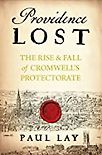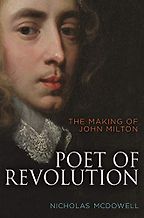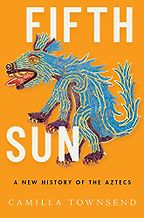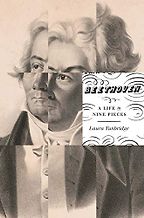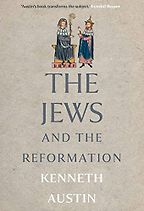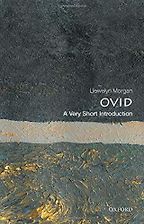Before we get to the books, did you select them in order to provide a spread of subjects from what’s been published this year, or are these the five outstanding history books of 2020? Also, were there any other books that you found it very painful to leave off the list?
Yes, there were. Considering what a bizarre year it’s been, it’s actually been quite a strong year for history books and I think these are my five favourites. They’ve turned out to be, by chance, quite a good spread of interests, but I didn’t particularly plan that.
There are a few other books that could easily have made the list. I think of Martyn Rady’s excellent history of the Habsburgs and T. G. Otte’s very good biography of Edward Grey, Britain’s Foreign Secretary at the outbreak of World War I. Alex Ross’s book, Wagnerism: Art and Politics in the Shadow of Music, which is about the relationship between Richard Wagner and just about everything that ever happened, is a fantastic achievement, as well.
Let’s start with Poet of Revolution: The Making of John Milton by Nicholas McDowell. Tell us why you chose it.
The mid-17th century is my period. I’m writing a book at the moment, which is looking at the fortunes of those who survived the Civil War and the Protectorate and their relationship with the Restoration. Milton is absolutely central to that. Milton’s life is well known. There have been quite a few biographies of Milton over the years, many of them very good, but I think this new book by Nicholas McDowell is superior to anything that I’ve yet read—and it’s only the first volume of two. It’s about the young Milton and this hothouse atmosphere in which he pursued his intellectual interests.
“This new book by Nicholas McDowell is superior to anything that I’ve yet read”
Milton was a quite formidable scholar from a very young age. At St Paul’s School, he mastered Greek and Latin very early. He spoke French, Italian and Spanish. He was a really brilliant linguist, but he was also absolutely on top of scholarship about writers such as Dante and Petrarch. From these very early years, he saw himself as an English Dante. He recognised that he was put on this earth—there’s a providential aspect to this—to write the great epic of the English nation, which of course he did, as an older, blind figure who had been ostracised by the political class after the Restoration. He had supported the regicide and came very close to being executed during the early days of Charles II. Thank God he wasn’t. He was left relatively alone and wrote his masterpiece, Paradise Lost.
This book doesn’t go that far. It really ends with the Civil Wars and Milton taking sides in that. He became a great polemicist for Parliament and for republicanism, actually. Although he worked for Oliver Cromwell, he was very much at odds with Cromwell, who was not really a republican in the sense that Milton was. There’s also this fascinating account of the way he embraces chastity as a young man, as though nothing can intrude on his intellectual pursuits. He’s quite an extraordinary figure.
There’s also really illuminating stuff about the political and religious background against which he operates, which is that the root causes of the divisions that emerged in English society, British society and Irish society were the actions of Archbishop Laud, who becomes this incredibly divisive figure—he eventually became Charles I’s Archbishop of Canterbury and was ultimately executed by Parliament. As a result of his actions, the division that already existed in English Protestantism between the high episcopalian wing of the church and the puritan wing, which had always been there since the beginning, suddenly became a fissure because of the utter lack of any kind of compromise that Laud allowed. It’s almost as though the via media of Elizabeth and, to a certain extent, James I just disappears overnight. Milton inhabits that world and he’s forged by that world.
I was going to ask where McDowell locates the birth of Milton’s republicanism, but you’ve already suggested the answer. Did he become a republican in the early 1630s with the arrival of Archbishop Laud and the Arminian takeover of the English episcopacy, or did his interest in Dante and classical authors infuse him with a nascent republicanism earlier, at school or university?
He was always interested in the Renaissance humanist tradition and some of that takes place in a republican milieu. He’s very interested in Venice, for example, which a lot of classical republicans around him are. He’s very interested in the work of Paolo Sarpi, who is a Venetian priest, who had been the propagandist for the Venetian Republic, similar to the way Milton becomes the propagandist for the English Republic. Sarpi served the Venetian Republic in its battles with the papacy around the time when Venice was excommunicated in the early 17th century. Sarpi wrote a history of the Council of Trent, with which Milton was very familiar.
That’s already forming his ideas but, like many English people at that time, I think he only makes the choice that he has to make relatively late in the day, because that’s when he has to.
And wasn’t he in Italy at the beginning of the Civil War?
Yes, he was. He was in Rome, in the Vatican. His life was often threatened because he was so outspoken in his anti-Catholicism and yet at the same time he’s there with learned Catholic priests, to whom he’s very close, in the Vatican, in Rome. He’s obviously such an impressive intellectual figure that they give him a lot of time in the pursuit of their interests, particularly Neoplatonism and the intellectual end of the Counter-Reformation. They very much saw Milton as an equal, even though he was a relatively young man—he wasn’t even 30 at that point. He was obviously someone of tremendous intellectual stature and people commented on how his Italian was absolutely fluent, like a native speaker, even though that was the first time he’d been there.
Get the weekly Five Books newsletter
But he wouldn’t compromise at all in his views. This book shows that a lot of his early writings were published anonymously and only towards the end of the book does he start to become this public figure who’s willing to put his views out there on the record.
So, as well as being an excellent biography of Milton, it’s also a brilliant survey of the intellectual milieu of the age in Europe?
Yes. It’s very very good. I highly recommend it.
Excellent. I can’t wait to read it. Let’s move on to Fifth Sun by Camilla Townsend, a new history of the Aztecs. The one thing I thought I knew about the Aztecs, but I’m clearly wrong, is that they didn’t have written sources. This is entirely based on written Aztec sources. Is that right?
That’s right. It just won the Cundill History Prize and deservedly so, I think. It’s a groundbreaking book in many ways. Camilla Townsend has been doing work on this for a while at what you might call a high scholarly level, and this is an attempt to take that learning to a slightly wider audience. With the publicity from the Cundill Prize, there will be many more people reading it.
Rather like Milton, in a way, she has this grasp of the languages that are needed to access the documents from which she takes the Mexica—the Aztec—accounts of their past. So she speaks Nahuatl. And she’s not just looking at Mexico. This goes all the way up to Utah where some of these people come from. There is a huge network of people for whom, Townsend suggests, the great basin of Mexico, where the city of Tenochtitlan is crucial, is seen as a kind of paradise. It’s almost like a promised land. Maize grows there, corn grows there. It seems abundant in things and it has this almost mythical quality for anyone who’s returned from there.
She has access to these documents called xiuhpohualli, which she translates as ‘yearly accounts’, but they are the Nahuatl people’s annals and, using these, she concentrates on a period of roughly about a hundred years either side of Hernan Cortes’s arrival. She is very concerned not to portray the Mexica, the Aztecs, as these people who indulge in human sacrifice and all the other things we know from Mel Gibson’s Apocalypto. But it does go on and the human sacrifice actually increases with time.
“This account gives us a much more complex and nuanced account of that world pre-conquest and post-conquest, as well as of the conquest itself”
The story she tells is that, basically, from about 1420, there is an alliance of people who turn the tables on the people who held power before. The Mexica gain this position of power and they build this fantastic city, Tenochtitlan, one of the great cities of the world. She’s very good on the way they organise their religious world. She’s very good on things like the way they organise sanitation and markets. They have this incredibly well-ordered system of markets that are overseen by groups of older women as law enforcers. It’s a remarkably peaceful, progressive kind of place—most of the time. And she’s very good on their extremely complex belief systems.
She’s very interested in the women who survived the conquest. One of the points she makes is that this culture carries on. It’s not destroyed by the arrival of the Spanish. There are still many people who speak these languages, as does Townsend. There’s a kind of intellectual love affair you sense she has with some of the people who survived. One of those is a woman called Malintzin, who is Cortes’s interpreter. She has access to Cortes, who treats her almost as an equal.
What we also get is an understanding of the divisions between the indigenous peoples of Mexico and that landscape. The Spanish were only able to do what they did because they formed alliances with people there. The book gives us a much more complex and nuanced account of that world pre-conquest and post-conquest, as well as of the conquest itself.
She gives quite a substantial appendix over to the sources that she’s talking about and uses. That is groundbreaking and absolutely fascinating. But it’s a relatively short book, just over 300 pages. It’s an important work, but it’s also a wonderful introduction to this culture and the people. It reads something like a labour of love, without at all whitewashing the worst aspects of this society. There’s much to admire, but there is also human sacrifice and slavery. There’s a kind of decadence that creeps over it.
You mentioned it focuses on the hundred years on either side of the conquest. Where does the story end?
It doesn’t really end, as such. She goes into quite a lot of stuff about the Nahua people now. So, it goes right up to the present day, but obviously that’s not the bulk of the book. But she goes deep into this history, thousands of years before the conquest and right up to the present day, looking at cultural and linguistic resonances. And more than resonance. It’s a living culture.
Excellent. Let’s move on to Beethoven: A Life in Nine Pieces by Laura Tunbridge. Beethoven would have been 250 next week and there’s been a lot of chatter about him. There are also lots of biographies. Why is this one good?
This was to be the year of wall-to-wall Beethoven. One of the last things I went to a couple of days before lockdown arrived was a performance of Fidelio at the Royal Opera House. I suppose it was ironic that this great opera about freedom and liberty should be the last thing a couple of days before we were all effectively imprisoned.
One of the things that I find quite strange about classical music is that people are very scared of it. It seems to frighten people in a way that almost no other art form does. I find this baffling, as someone who’s never had any formal education in classical music. I’ve never understood why it intimidates people in the way it does, but it does.
It’s a great shame that a lot of the opportunities to think about Beethoven have been lost over the last nine months of this year as a result of the virus. There’s been Donald Macleod’s excellent series on Radio Three about his life. But I think people want a place to begin to understand his vast output. Laura Tunbridge has written this relatively short book. There’s a lot of learning in it, but it’s light. It sets nine works by Beethoven within their historical and cultural context. Some of them are very well known, including Fidelio on the theme of liberty, and some of them are not.
“You don’t need any musical knowledge to enjoy this book. It’s a very interesting account of a great artist”
She begins with a look at a work that’s not played very often, his Septet, which is an early work from about 1800, rarely performed. I don’t think I’ve ever actually seen it performed, but it was one of the most popular works of his lifetime. That’s because the way in which classical music was performed and the kind of events at which it was performed were very different to what we expect now. She’s very good at looking at how audiences have changed and how patronage has changed.
Beethoven was really the first of the great composers who made a living through his work. He does get aristocratic patrons, but he’s not, in the end, dependent upon them. There’s a fee-paying public out there, an emerging bourgeoisie that wants to pay for his music. She looks at his relationship with chamber music, which tends to be on a smaller scale and at his relationship with people who would have played his violin sonatas and string quartets.
She looks at his relationship with Napoleon, who completely bestrides this period. He is like the Colossus, above everything. One minute he’s Beethoven’s great revolutionary hero and then, when he causes appalling suffering in Austria—Beethoven was living in Vienna—and in his native Rhineland, Beethoven turns against him. Eroica, the great groundbreaking symphony, having originally been dedicated to Napoleon, is rededicated to ‘a great man’. It may have been Beethoven talking about himself.
She talks about his love life—he’s one of the first architects of German Lieder, the song tradition. She talks about concepts of liberty, she talks about his religious views through his later choral masterpiece, the Missa Solemnis.
And, of course, she talks about his deafness. I didn’t realise this, but the Heiligenstadt Testament only became public after his death. It is a great confessional letter prompted by his deafness, in which he laments losing the only sense that actually matters to him. He comes close to suicide but then, through some sheer force of will, he overcomes this. He becomes insular, so his very greatest masterpieces, like the late string quartets and the late piano sonatas, become these incredible internal works, that he never hears. They’re only in his head.
Five Books interviews are expensive to produce. If you're enjoying this interview, please support us by donating a small amount.
It’s the most monumental tragedy and then the idea of him as this irascible, difficult, semi-alcoholic figure suddenly becomes something else after his death. He becomes heroic, anticipating Freudian ideas of the individual and self. He becomes a more modern figure. It was only the testament, made public after his death, that made people realise that these great works were born of this great suffering. And he becomes this Romantic archetype of the artist as hero. Tunbridge covers all this extraordinarily well.
She covers all that, including the posthumous legacy, does she?
Absolutely. And people who aren’t musicologists shouldn’t worry. It’s not a book mired in technicalities. She talks about it for the layperson. You don’t need any musical knowledge to enjoy this book. It’s a very interesting account of a great artist.
Sounds like an absolute must-read. Let’s move on to The Jews and the Reformation by Kenneth Austin. Tell us about this one.
Well, it’s become quite an important thing to me. It’s a subject that I’ve had to take a lot of interest in over the past few years in writing my book about Cromwell’s Protectorate. Cromwell was the main agent of the resettlement of Jews into England. They had been expelled from England in 1290, unbelievably, and were absent in any official, legitimate way from English culture for the best part of 350 years.
I’d become interested in Jewish life and the interaction between Jewish and Christian life politically, theologically and commercially during the 17th century, which is essentially what we’re talking about here. Of course, it’s about much more than that because the Reformation’s concentration on the Word—not just Luther, but Calvin—brought a renewed scholarly attraction to and attention on the Bible. The true meaning of this ‘Word’ became so important. You had a lot of Protestants, in all their different guises, looking at the Old Testament in particular, for which Hebrew was absolutely crucial, but also at St Paul in Greek, and at Jewish writers who were writing in Greek and other languages as well.
As well as that, Jews as ‘the other’ became people closer to you, if you were one of these scholars. And yet, at the same time, because of the divisions in Christianity and Christendom, they became not the only other. If you were a Protestant, the Catholics were the ‘other’; if you were a member of the Church of England, then Presbyterians or Baptists became the ‘other’. There was this whole pool of new people you could oppose. And, of course, if you were Catholic all the Protestant world was the ‘other’. So, the Jews were no longer the only ‘other’.
Did that improve things in any way for the Jews? Did that unintended pluralism help them? Or did it make it worse?
There was a kind of legitimacy to their position in England. It depended where you were. In Italy there tended to be quite a strong tradition of relative tolerance and for quite a long while, certainly in England, it improved. How typical that was is difficult to say.
But Protestantism was obsessed with anything to do with millenarianism, this idea that Christ would return to Earth and would herald the new Jerusalem. In Paul’s Epistle to the Romans, there’s quite an important phrase which says, “All Israel will be saved,” which was interpreted as meaning that before this can happen, the Jews will be saved. And they will be saved if they convert to Christianity. This comes back to why Cromwell wanted Jews resettled in England: it wasn’t out of humanitarian idealism, of tolerance towards a beleaguered ethnic group or anything. It was related to the idea that England was on its way to creating the perfect Christian country on Earth and therefore, if Jews resettled, that was the place they were most likely to be converted to Christianity. Therefore Christ would return to England. That would be the chosen place.
We’ve got to understand that politics and religion at this time were absolutely one, and this is a point that Kenneth Austin makes from the very beginning of this book. It is impossible to divide politics and religion in any way at this point. Jews can be the beneficiaries of this and they can be the victims of it. It’s a rather capricious world in which they are involved.
Does he talk about how the Jews received this Protestant ambition to convert them? And was it at all successful in England in the late 17th century?
Not really. It’s puzzling. There were a lot of people around Cromwell, for example, who really didn’t want Jews resettled. Cromwell himself can’t pass a law which will allow them to. He does it with a nod and a wink through a person called John Sadler, who was Cromwell’s secretary for a while and was Master of Magdalene College, Cambridge. He was a noted Hebraist and Neoplatonist. He was very much involved in this hermetic world of millenarianism.
Magdalene College happened to hold some land in the City of London, which is where Cree Lane is now, just near St Mary Axe and the Gherkin. You can see a plaque there for the site of the first synagogue in Britain since the resettlement, which I think was 1656 or 1657. That synagogue lasted until about 1701. The Jewish Community was largely Sephardic—from Portugal and a Portuguese community in Amsterdam. The main agent of this was a person called Manasseh Ben Israel who was a very learned intellectual, who brought over a community. He was friends with Cromwell and Sadler.
“We’ve got to understand that politics and religion at this time were absolutely one, and this is a point that Kenneth Austin makes from the very beginning”
But I don’t think anyone had worked anything out other than to give them a synagogue and allowing them to trade openly. It was not like the large-scale immigration of the 19th century, with Ashkenazi Jews from Eastern and Central Europe escaping Russian pogroms.
This 17th-century community, particularly the ones from Amsterdam, were familiar with a similar political and mercantile milieu to the one operating in the City of London. By and large they were left alone. They were useful. They had good networks in Europe, intelligence networks as well as trading networks. They proved useful to the regime and, when the Cromwellian regime disappeared, there was no attempt to change anything. They just carried on slowly expanding. Bevis Marks Synagogue, which still stands, was built in 1701 and is relatively near to where the original synagogue was. They’ve been there ever since.
Does the book largely focus on England, or have a bias towards England?
No, not at all. It’s very much about Europe as a whole and covers all of this in a series of chapters that deal with the reaction of Protestantism in all its different guises, and Catholicism in the Counter-Reformation, as well. So you get a real panorama. It’s a fascinating book.
Last on your list of best history books of 2020 is Ovid: A Very Short Introduction by Llewellyn Morgan. Why is this a great book?
I’m not a classicist, but in the three months of this year that I was allowed out, I just kept coming across Ovid quite a lot—for instance, the Titian exhibition at the National Gallery, which was absolutely astounding. Only six paintings, but the first time that the collection of paintings based upon Metamorphoses, which Titian painted for Philip II, have been assembled in a single room for 300 years. Quite extraordinary.
Delving into this, you realise that everyone steals from Ovid—Dante, Chaucer, Shakespeare, James Joyce mentions him, Ted Hughes, Margaret Atwood has a short story about him. Jeffrey Eugenides’s novel, Middlesex, was based upon Metamorphoses. Even Enid Blyton adapted him for a children’s book about tales of Ancient Greece. In the world of music, Handel, Gluck, Lully, Benjamin Britten—they’ve all adapted tales from Ovid. So, just at a time when I thought I really should know a little bit more about Ovid, Llewellyn Morgan comes up with this book.
The Very Short Introductions, at their best, are really excellent. I’m thinking of John Arnold’s introduction to history, for example. It’s a really superb, very personal account, of the attractions and meaning of history as a discipline. That’s a fascinating one. Sadly, because they’re part of a collection, they’re not often reviewed. But there are some real gems within them, lots of good ones.
This one is a really loving account of Ovid, with a very simple structure. It takes you through his major works, with the Metamorphoses obviously at the centre. It’s also, to a certain extent, a meditation on exile. Ovid is one of the great figures of exile. It’s very good on that perspective. It’s a wonderful little book. I can’t think of a better introduction to the work of this figure who is, arguably, the single most influential poet of antiquity.
So, even if you don’t want to read Ovid, it’s super helpful if you want to read Shakespeare or Dante or indeed pretty much anyone else. Is that the point?
Yes. And going back to what we were talking about before, this is extremely useful when looking at Milton. It confirms one of my worries about history at the moment. I’ve talked about language and religion here and the two are often bound up. Unless you really have some grasp of foreign languages, or the vocabulary of religions—both of which are rather neglected in Britain today—you can’t really have any geographical or chronological depth in history. You’re stuck with the 20th century, the 19th century and probably just the West.
If you really want to practise history, then you need languages and you need an understanding of religion and I think all the books we have talked about, these five books, which range from Ovid, to Jews in the Reformation, to the Aztec world, to Milton, this great poet, and to Beethoven—music being a language in itself—all of them represent the idea that, unless one has some kind of facility in these languages in all their variety, then you’re lost as a historian. Whenever anyone asks me who the greatest living historian is, I always think of Peter Brown, the great Princeton Professor, who speaks something like 27 languages and has this incredible familiarity with religion—Islam, Christianity, Judaism and Zoroastrianism. He mastered all this in order to understand the world that he named ‘Late Antiquity.’ That’s the model we should follow. We can’t all be Milton in our mastery of languages, but we can try.
I completely agree with that. Being a monoglot historian is like being a colour-blind painter.
That’s a good analogy.
Part of our best books of 2020 series.
Five Books aims to keep its book recommendations and interviews up to date. If you are the interviewee and would like to update your choice of books (or even just what you say about them) please email us at [email protected]

